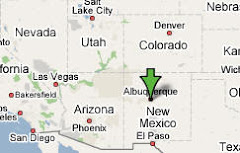I know it's the holidays, and I should be writing about wintertime glee (and I'll get to those posts), but I've saved several draft posts to savor and recap the short-lived seven weeks I had off earlier in the year (a.k.a., sabbatical). While I didn't physically travel much (save for a brief trip to California), I did manage to take a journey in reading, catching up on a book I've been meaning to read for years, as well as being introduced to a new author (to me), a new way of eating, and an education in art.
Books I Read on Sabbatical
Crossing to Safety by Wallace Stegner. Although I was an English major in college and read a good deal of modern American literature, I had never heard of Wallace Stegner, a legendary American short-story writer, historian, environmentalist, professor, and novelist. It's not a dramatic novel with lots of blood, sweat, sex, and tears, but a quiet novel about the subtelties in a lifelong friendship between two couples. One would think, with a topic like that, the book would have been a snoozer, but I couldn't put it down. Stegner writes descriptions as if you were in the novel yourself, witnessing the characters first-hand as they win their victories and make their mistakes, and living the story as it unfurls.
Clean: The Revolutionary Program to Restore the Body's Natural Ability to Heal Itself by Dr. Alejandro Junger. Aside from my early education in the wisdom of the Bible, I've read a few books I can say have fundamentally changed my way of thinking about taking care of the everyday business of life, among them How to Win Friends and Influence People by Dale Carnegie (don't knock it before you read it! Everyone should take a refresher on this book in the 21st century) and Die Broke by Stephan Pollan. Clean is another one of those books that reset my basic understanding of something we all typically do about three times a day (EAT!) and the effects of our modern lifestyles and environment on our bodies and overall well-being.
Clean prescribes a healthy three-week cleansing program to reset your body's rhythms while balancing physical, spiritual, mental, and emotional activities in a demanding lifestyle. And the best part about the cleanse: it's not just water and grapefruit--it involves real food everyday to uberboost your health. After the three-week program and continuing some of its principles in my everyday diet, I haven't felt or looked this healthy in years!
The Amazing Adventures of Kavalier & Clay by Michael Chabon. I remember when this novel won the Pulitzer Prize for Literature in 2001, and I've been wanting to read it ever since. Eight years later, I finally picked it up and embarked on the amazing 656-page journey myself. I took two months to finish the novel, but it was worth every page. There were a couple of slow parts in the journey, but I savored every minute of this story about two young Jewish cousins--one American, the other Czech--during WWII in New York City, the rise and fall of the superhero comic book era, and the dawn of the nuclear age. In some places, the novel reads like a comic book itself, and takes you on a colorful, forbidden escape. Most of the novel, though, is a metaphor for life, love, art, sexuality, innocence, and childhood, peppered with the perils of war and the power of hate on the stage of world history. Most authors would be taking on too much to tackle all of these topics in one novel, but Michael Chabon nails it in a single bound.
Smile of the Buddha by Jacquelynn Baas. This was required reading for one of my art classes during sabbatical, and it was a pleasure for me to learn about artists such as abstract expressionists Agnes Martin and Ad Reinhardt, and Romanian sculptor Constantin Brancusi. The book explores the influences of Asian thought (particularly Buddhism) on modern-era European and American artists, thus the title of the class I took, "Bridging the Gap". Each week, we read about one of these artists and how Eastern thought influenced their work. After discussing the chapter in class, we'd emulate the artist's work using their principles and techniques. Each week was a meditation and helped me slow down during the first few weeks of my sabbatical.
It's rare that I have the time to even read one book in a month so if nothing else, this sabbatical allowed me time to expand my library and stretch my thinking.
simple crispy pan pizza
2 weeks ago

